Portugal, a country steeped in history and blessed with stunning landscapes, offers visitors a perfect blend of old-world charm and modern vibrancy. From its sun-drenched beaches along the Algarve coast to the rolling vineyards of the Douro Valley, Portugal captivates with its diverse beauty. The country’s rich maritime heritage, ornate architecture, and soulful fado music create a captivating atmosphere that lingers long after your visit. With its warm Mediterranean climate, delectable cuisine, world-renowned wines, and famously hospitable people, Portugal provides an unforgettable experience for every type of traveler. Whether you’re exploring ancient castles, surfing world-class waves, or savoring port wine in centuries-old cellars, Portugal’s timeless allure is sure to leave you with a sense of saudade – a nostalgic longing to return.
Must-see attractions
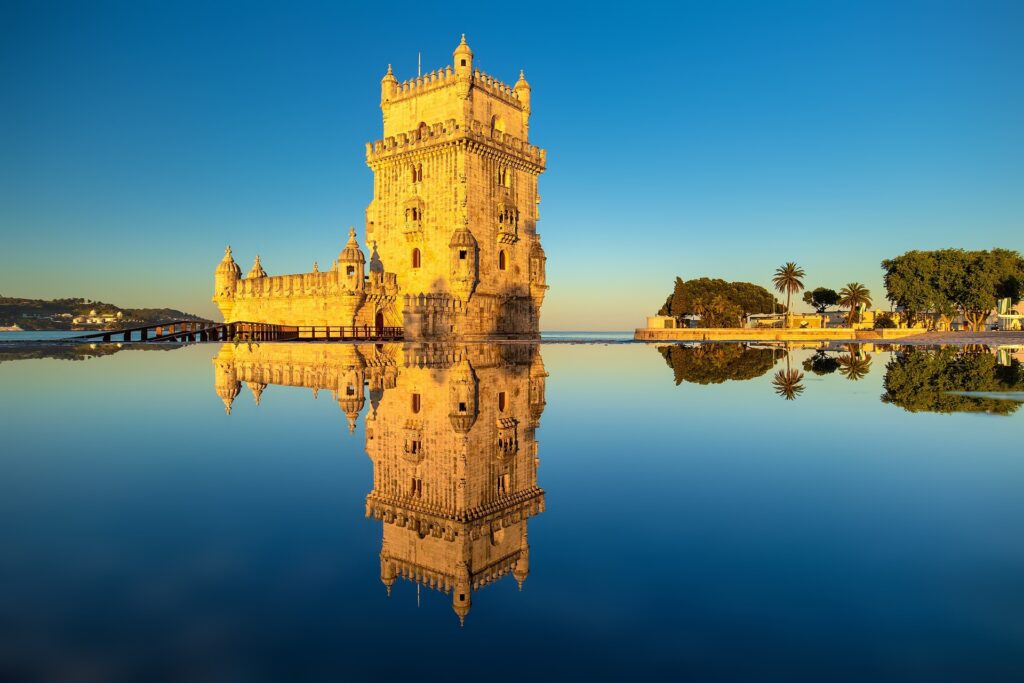
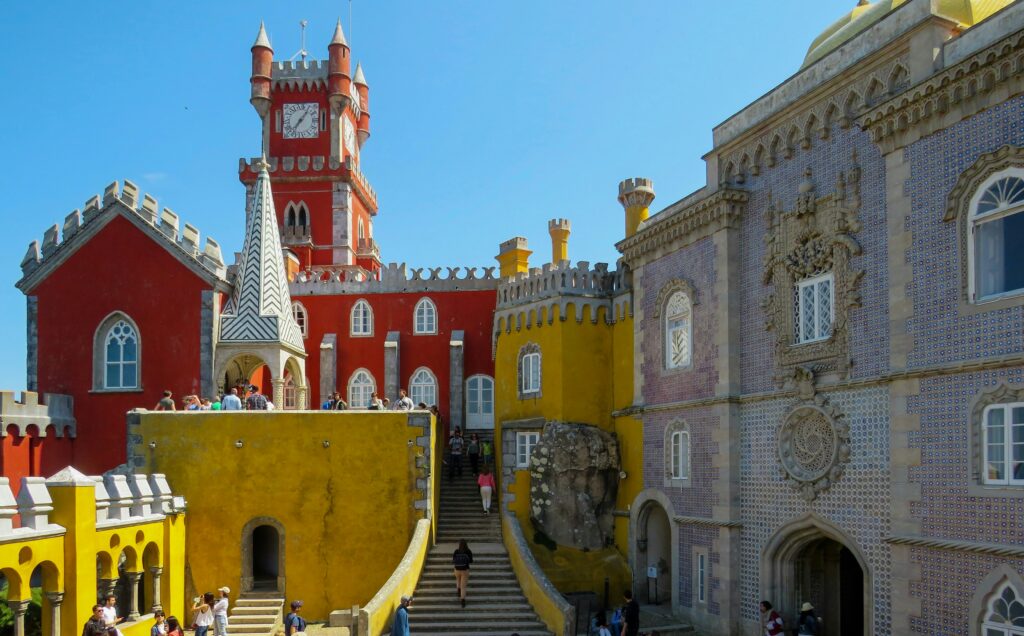
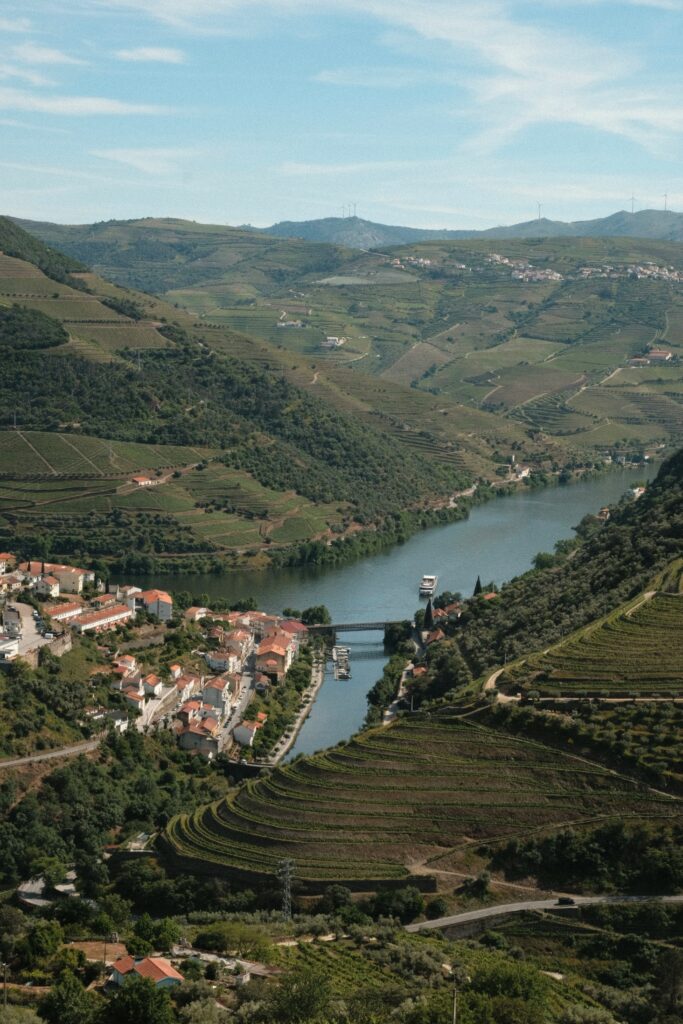
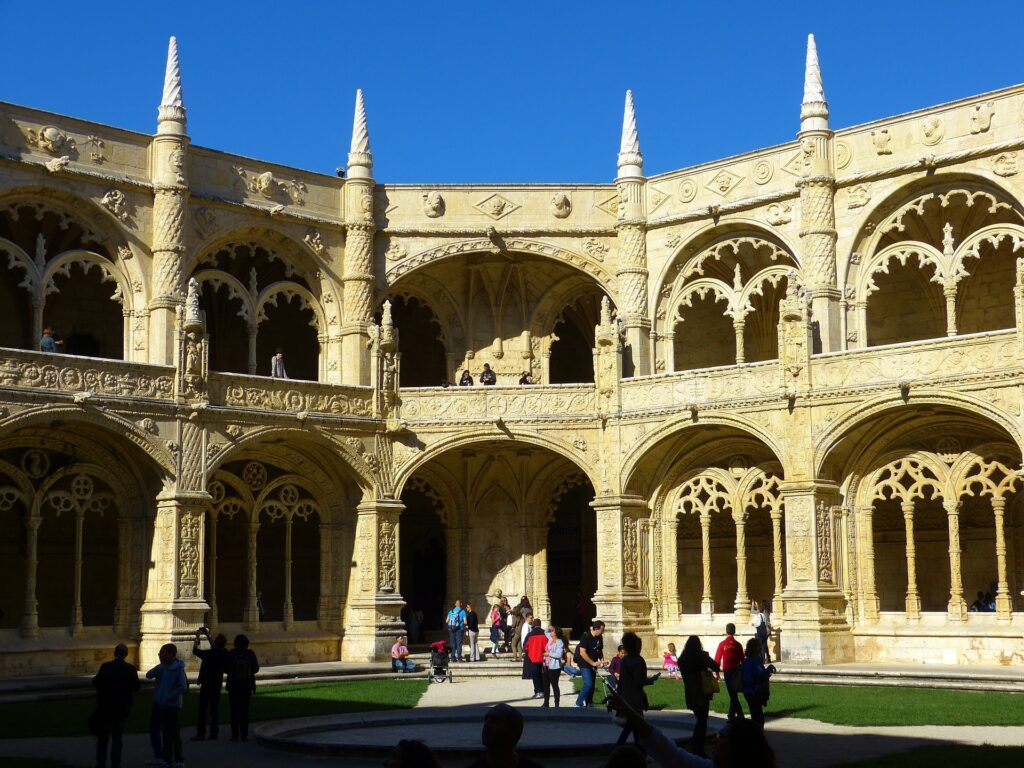
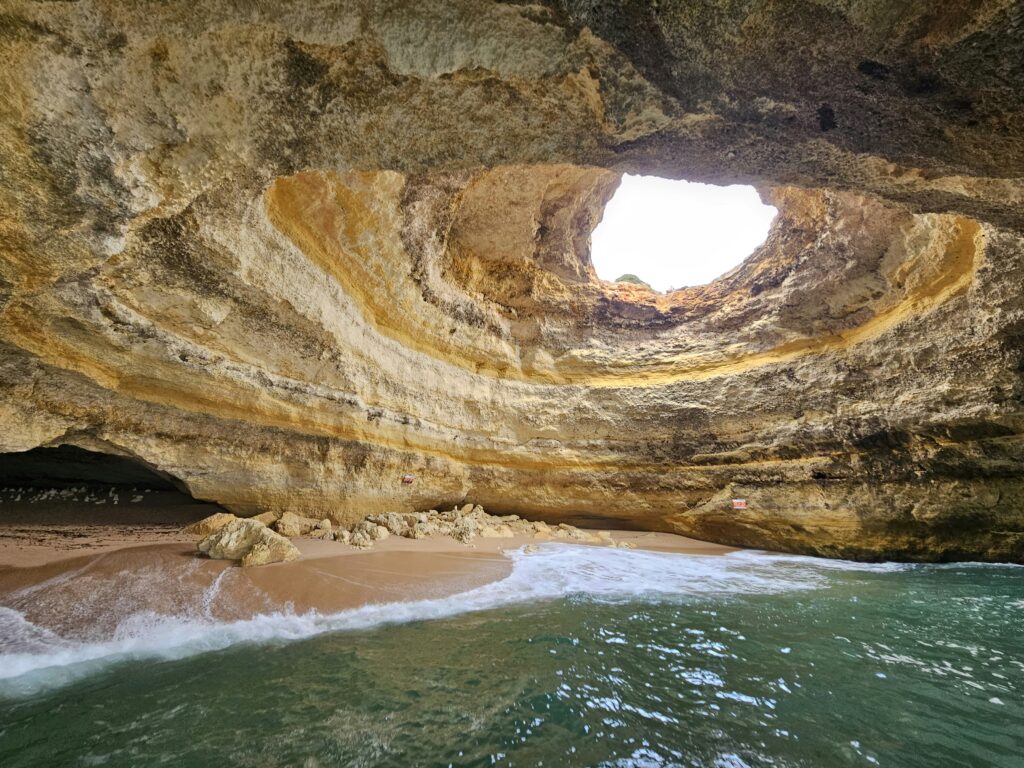
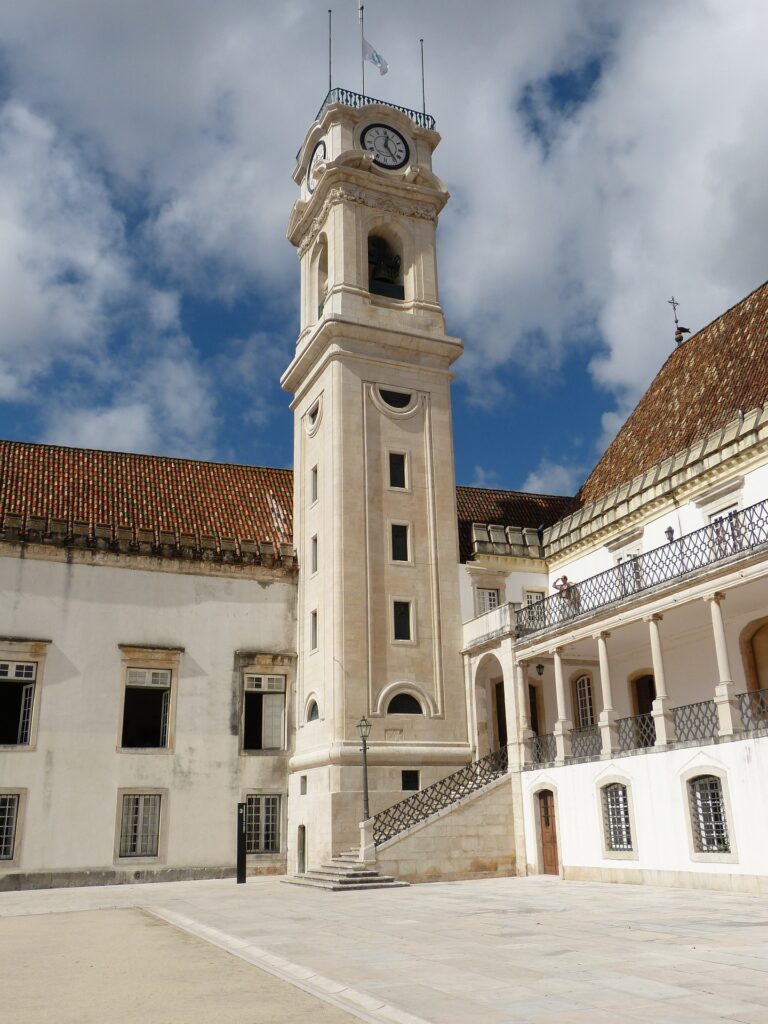
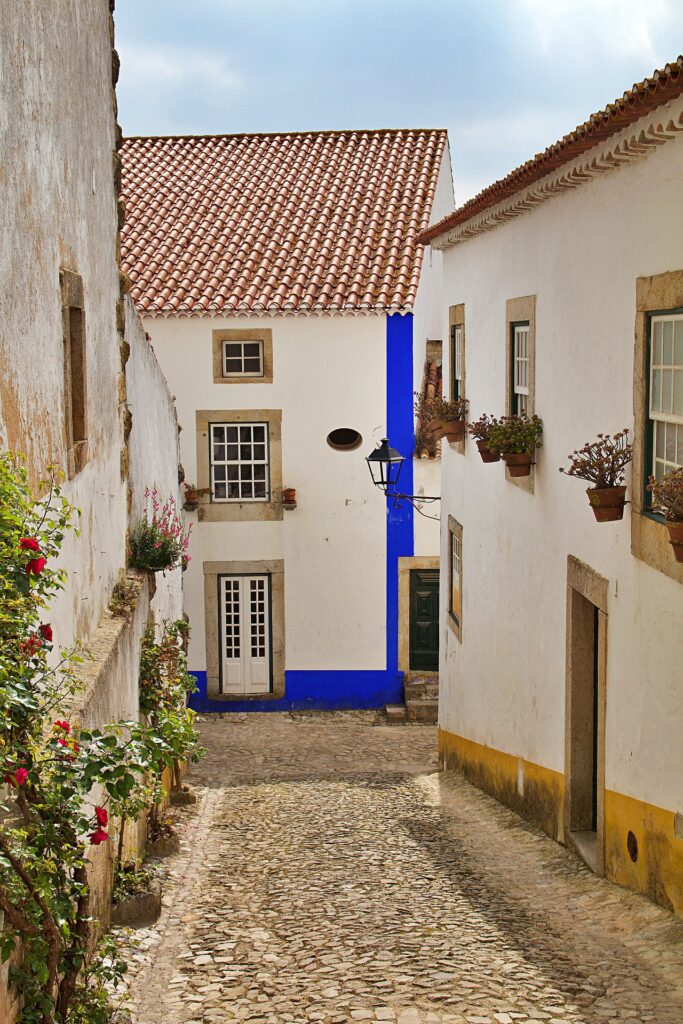
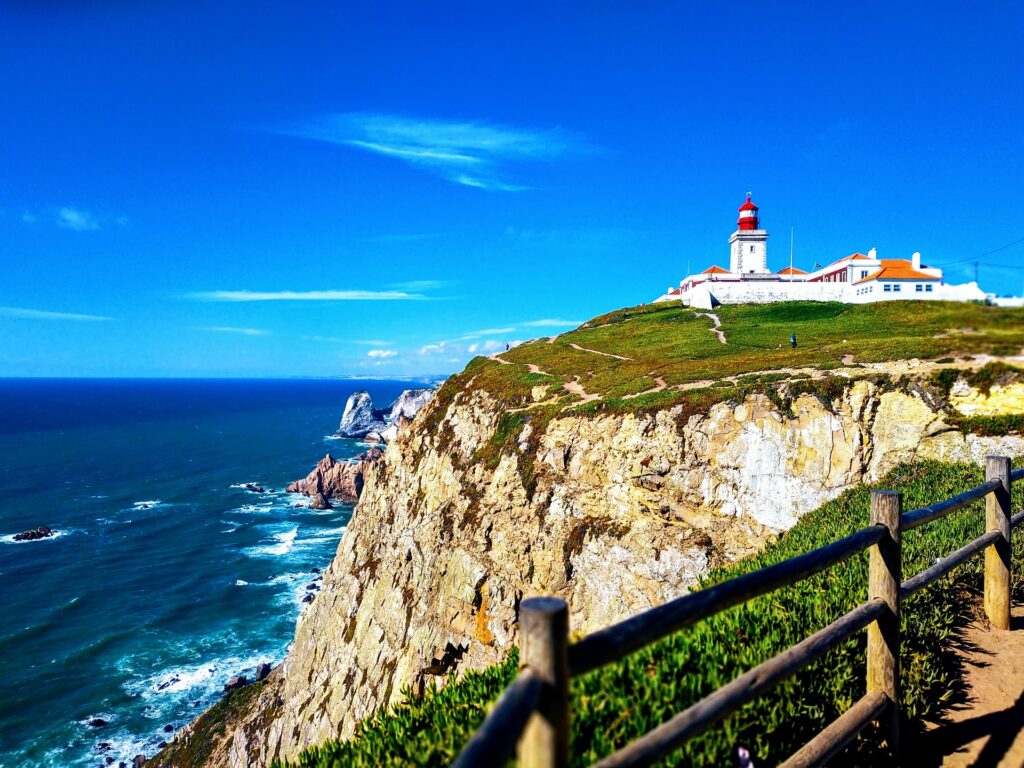
- Belém Tower, Lisbon: A 16th-century fortification and UNESCO World Heritage site, symbolizing Portugal’s Age of Discovery.
- Pena Palace, Sintra: A colorful 19th-century Romanticist castle set atop a hill, offering stunning views and whimsical architecture.
- Douro Valley: The world’s oldest demarcated wine region, famous for its port wine and breathtaking terraced vineyards.
- Jerónimos Monastery, Lisbon: A masterpiece of Manueline architecture and final resting place of explorer Vasco da Gama.
- Benagil Cave, Algarve: A stunning sea cave with a natural oculus, accessible by boat or kayak.
- University of Coimbra: One of the world’s oldest universities, featuring the spectacular Joanina Library.
- Óbidos: A picturesque medieval town encircled by ancient walls, known for its narrow cobblestone streets and whitewashed houses.
- Cabo da Roca: The westernmost point of continental Europe, offering dramatic cliffs and Atlantic views.
Popular cities and regions

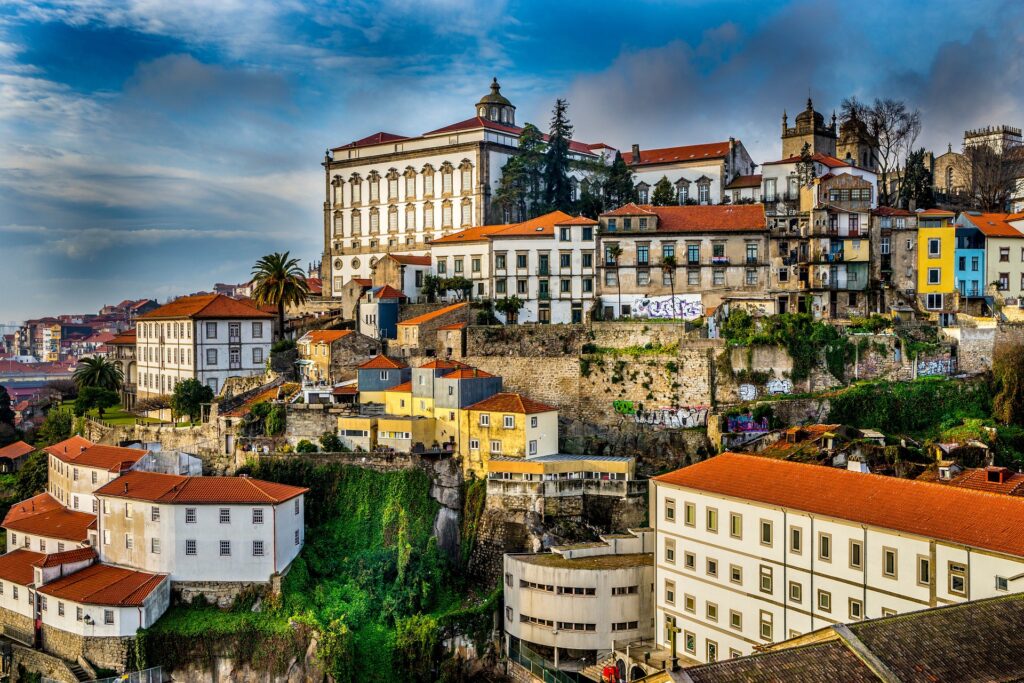
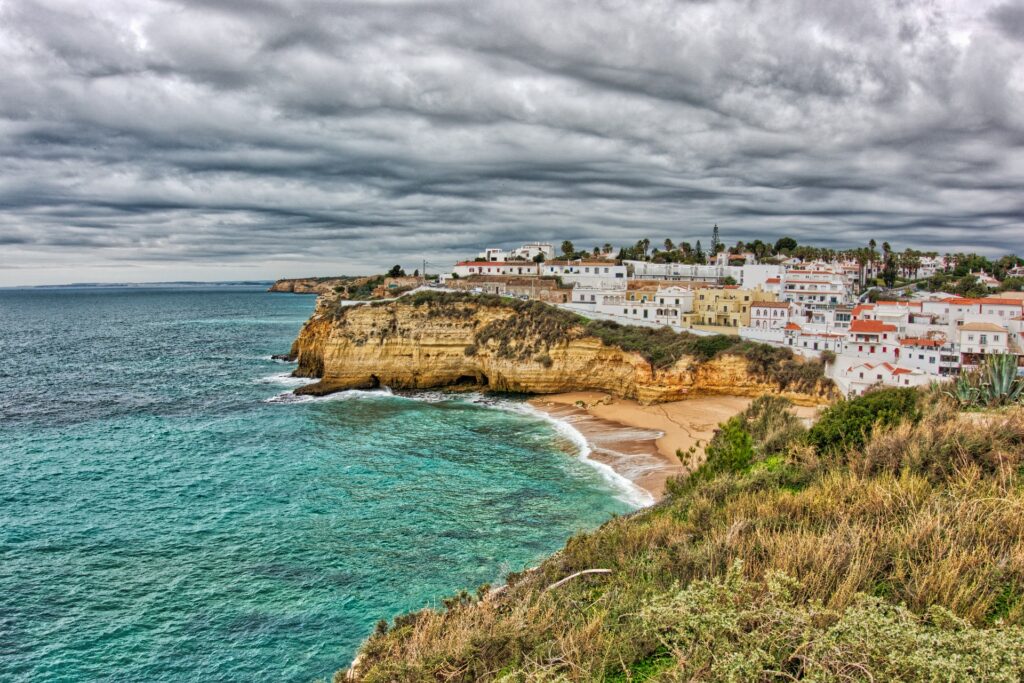
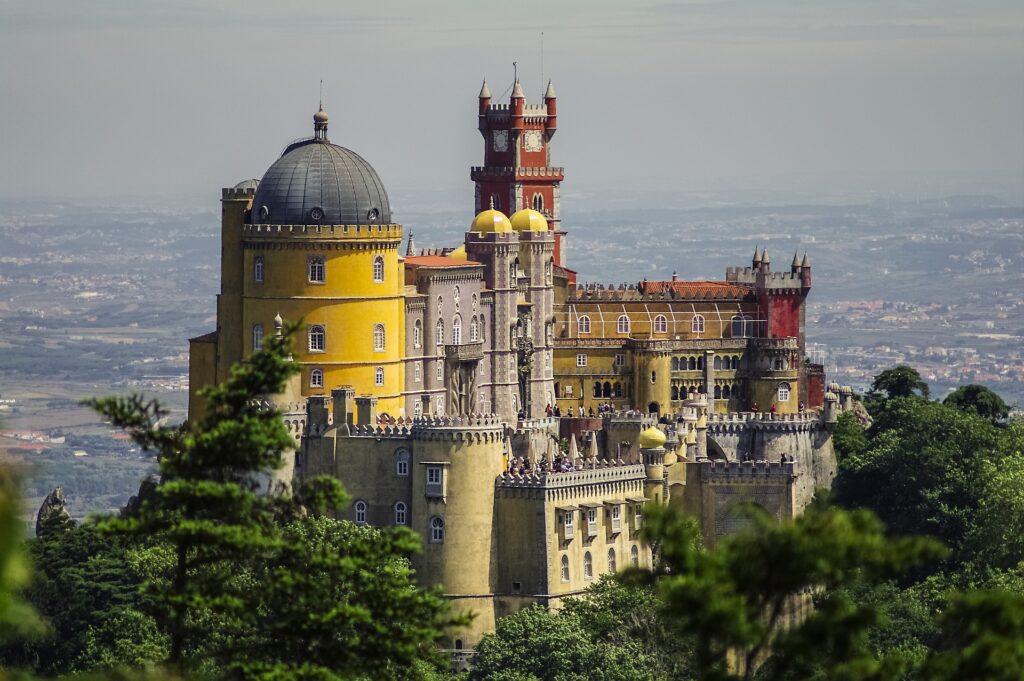
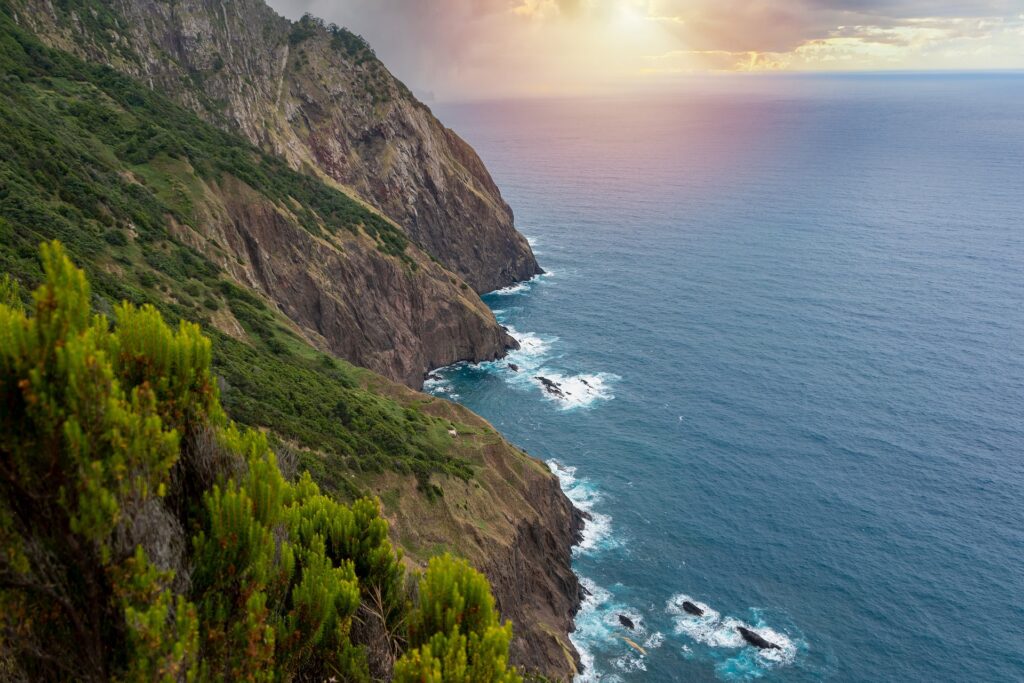
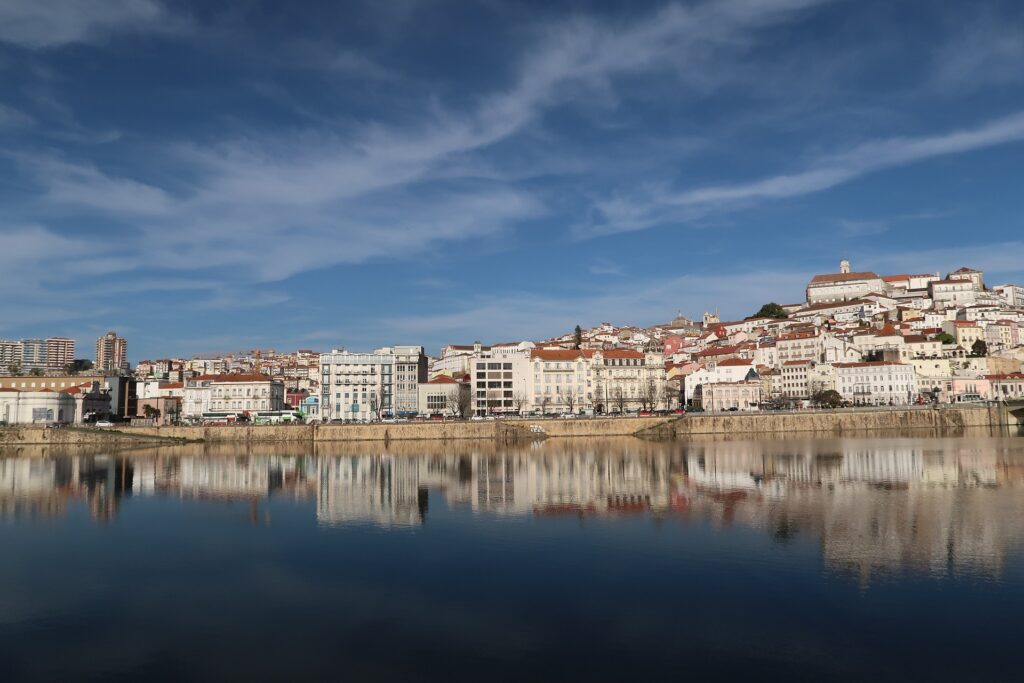
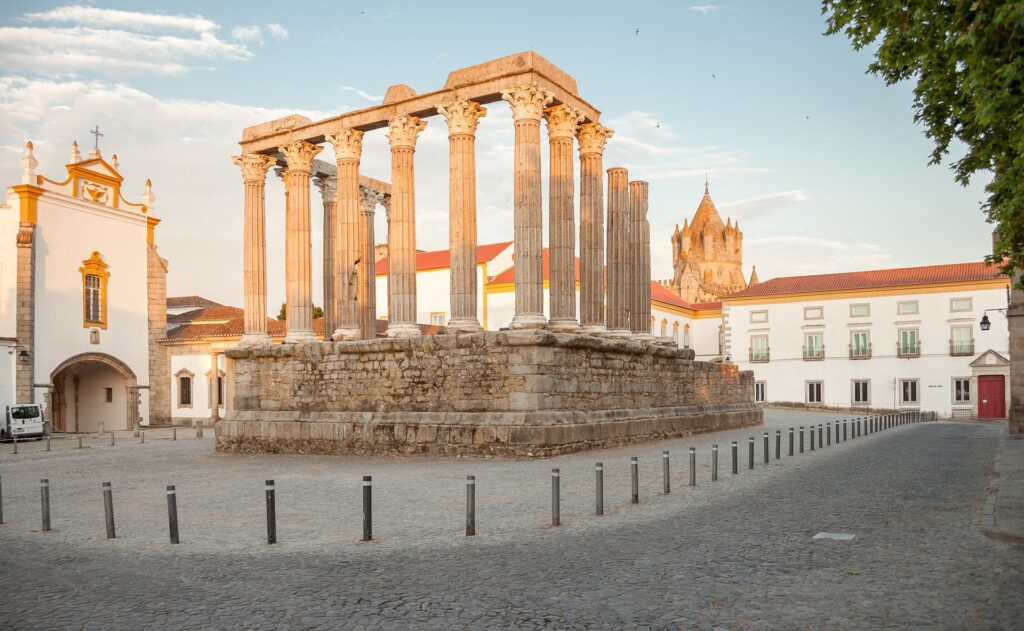
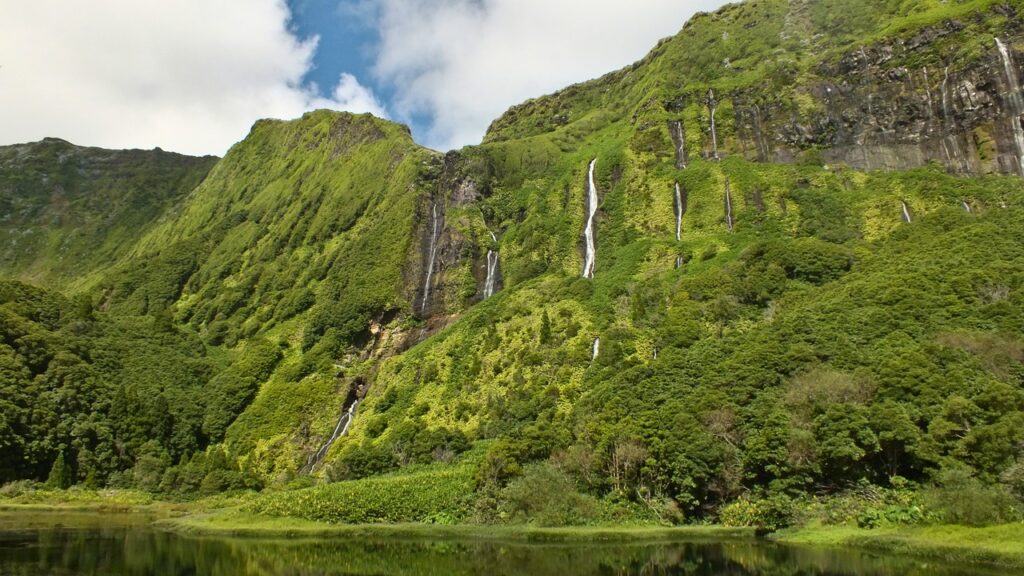
- Lisbon: The vibrant capital city, known for its historic neighborhoods, excellent cuisine, and iconic trams.
- Porto: Famous for its port wine cellars, stunning bridges, and beautiful riverside district of Ribeira.
- Algarve: The southern coastal region boasting beautiful beaches, golf resorts, and charming fishing villages.
- Sintra: A fairytale-like town near Lisbon, filled with romantic palaces and lush gardens.
- Madeira: An autonomous region known for its wine, flowers, and year-round mild climate.
- Coimbra: A historic university town with a well-preserved medieval old town.
- Évora: A UNESCO World Heritage site in the Alentejo region, known for its Roman temple and macabre Chapel of Bones.
- Azores: A stunning archipelago in the mid-Atlantic, offering volcanic landscapes, whale watching, and outdoor adventures.
Suggested itineraries
Classic Portugal (10 days)
- Lisbon (3 days):
- Explore Belém Tower and Jerónimos Monastery
- Wander through Alfama and ride Tram 28
- Day trip to Sintra and Cabo da Roca
- Porto (3 days):
- Visit port wine cellars in Vila Nova de Gaia
- Explore Ribeira district and São Bento train station
- Day trip to Douro Valley for wine tasting
- Coimbra (1 day):
- Visit the University and Joanina Library
- Explore the old town
- Algarve (3 days):
- Relax on beaches in Lagos or Albufeira
- Visit Benagil Cave
- Explore the historic town of Tavira
Central Portugal and Beaches (2 weeks)
- Lisbon (4 days): As described in the first itinerary, plus:
- Day trip to Óbidos
- Nazaré (2 days):
- Watch (or ride) the famous giant waves
- Visit the Sitio neighborhood for stunning views
- Coimbra (2 days):
- As described in the first itinerary
- Visit the Portugal dos Pequenitos miniature park
- Aveiro (1 day):
- Ride a moliceiro boat through the canals
- Try ovos moles, a local sweet delicacy
- Algarve (5 days):
- Beach hopping along the coast
- Visit historic towns like Silves and Tavira
Boat tour of the coastline and caves
Northern Portugal Explorer (1 week)
- Porto (3 days): As described in the first itinerary
- Douro Valley (2 days):
- Stay in a vineyard hotel
- River cruise and wine tasting
- Guimarães (1 day):
- Explore the birthplace of Portugal and its castle
- Braga (1 day):
- Visit the Bom Jesus do Monte sanctuary
- Explore the historic city center
Portugal’s Hidden Gems (2 weeks)
- Combine elements from the above itineraries and add:
- Évora (2 days):
- Explore the Roman Temple and Chapel of Bones
- Wine tasting in the Alentejo region
- Berlengas Islands (1 day):
- Day trip from Peniche to this nature reserve
- Monsanto (1 day):
- Visit the unique village built among giant boulders
- Parque Nacional da Peneda-Gerês (2 days):
- Hike through stunning landscapes
- Swim in natural pools
- Madeira (3 days):
- Hike the levadas (irrigation channels)
- Visit the Monte Palace Tropical Garden
- Try the famous Madeira wine
Remember, these itineraries are just starting points. Portugal’s compact size and excellent transportation system make it easy to explore, but each region offers unique experiences worth savoring. Don’t forget to indulge in the delicious Portuguese cuisine, from fresh seafood to pastel de nata, and take time to enjoy the relaxed pace of life. Whether you’re interested in history, nature, culinary experiences, or simply soaking up the sun, Portugal offers a wealth of experiences that will leave you longing to return. Embrace the spirit of discovery that inspired Portugal’s great explorers, and create your own unforgettable adventure!
Travel Documents
- Passport: Ensure your passport is valid for at least six months beyond your intended stay in Portugal.
- Visa: Portugal is part of the Schengen Area, which allows travelers from many countries, including the U.S., Canada, the EU, and Australia, to enter visa-free for up to 90 days within a 180-day period for tourism. If you plan to stay longer or visit for work or study, check visa requirements.
- Health Insurance: If you’re from the EU, remember to bring your European Health Insurance Card (EHIC) for medical coverage. Travelers from non-EU countries should have travel health insurance to cover medical emergencies.
Entry Requirements
- COVID-19: Check for updated travel restrictions, as Portugal may have entry requirements such as proof of vaccination or a negative COVID-19 test, especially for non-EU travelers.
- Customs: When arriving in Portugal, you may be required to declare any large amounts of cash (over €10,000) and be aware of restrictions on bringing in certain goods, especially agricultural products, alcohol, and tobacco.
Health Conditions
- Vaccinations: No special vaccinations are required for Portugal. However, it’s recommended to have routine vaccines such as tetanus, hepatitis A, and hepatitis B.
- Healthcare: Portugal has a good healthcare system, and medical services are widely available. In case of emergencies, the number to dial is 112. Make sure to have travel health insurance to cover medical costs.
Currency and Payment Methods
- Local Currency: Portugal uses the Euro (€), and it’s easy to find ATMs in cities and towns for withdrawing money.
- Credit and Debit Cards: Most hotels, restaurants, and shops in Portugal accept credit and debit cards like Visa and Mastercard. However, it’s wise to carry some cash, especially in rural areas or smaller shops.
- ATMs: ATMs, called Multibanco, are widely available, and most of them accept foreign cards. Be aware of potential foreign transaction fees from your home bank.
Language and Culture
- Language: The official language is Portuguese, and while English is spoken widely in tourist areas, it’s helpful to know a few basic phrases in Portuguese. Simple greetings like “Olá” (Hello), “Obrigado/a” (Thank you), and “Por favor” (Please) are appreciated by locals.
- Cultural Etiquette: The Portuguese are generally warm and polite. Handshakes are the common form of greeting, and when visiting someone’s home, it’s customary to bring a small gift, like flowers or wine.
- Dining Etiquette: In Portugal, meals are meant to be enjoyed slowly. When dining, avoid rushing through your food. Tipping is not obligatory but appreciated—usually rounding up or leaving 5-10% at restaurants.
Safety
- General Safety: Portugal is considered one of the safest countries in Europe, with low crime rates. However, as in any tourist destination, keep an eye on your belongings in crowded places, especially in busy cities like Lisbon and Porto where pickpocketing can occur.
- Natural Hazards: Portugal is generally safe from natural disasters, but the country can experience forest fires, especially in summer. Always stay informed of weather conditions if visiting rural or forested areas.
Weather and Clothing
- Mediterranean Climate: Portugal has a Mediterranean climate, with warm summers and mild winters. Coastal regions like Lisbon and the Algarve have more moderate temperatures, while inland areas, such as the Douro Valley, can get hotter in summer and cooler in winter.
- What to Pack:
- For summer visits, pack light, breathable clothing and comfortable shoes for walking.
- If visiting in winter or to the north, bring warmer layers as evenings can get chilly.
- Sunscreen, hats, and sunglasses are essential for the sunny summer days.
- A light rain jacket or umbrella is advisable in spring and fall as these seasons see occasional rain.
Transportation
- Public Transport: Portugal has an efficient public transport system. In cities like Lisbon and Porto, trams, buses, and metro systems are affordable and reliable. Lisbon’s tram 28 is a popular way to see the city’s historic areas.
- Trains: The Comboios de Portugal (CP) rail network connects most of the country, making it easy to travel between cities and regions. High-speed trains like the Alfa Pendular connect Lisbon, Porto, and the Algarve.
- Taxis and Ride-Hailing: Taxis are widely available and reasonably priced. Apps like Uber, Bolt, and FreeNow also operate in most cities.
- Car Rentals: Renting a car can be a good option if you want to explore the countryside or coastal regions at your own pace. Be aware of toll roads and the narrow streets in historic city centers.
- Driving: In Portugal, they drive on the right-hand side of the road. If you’re renting a car, an International Driving Permit (IDP) might be required, depending on your nationality.
Accommodation
- Hotels and Guesthouses: Portugal has a wide range of accommodation options, from luxury hotels and boutique stays to budget-friendly guesthouses and hostels. The pousadas, historical buildings like former monasteries turned into hotels, offer unique experiences.
- Airbnb and Holiday Rentals: Apartment rentals through platforms like Airbnb are popular, especially in Lisbon, Porto, and the Algarve.
- Farm Stays: For a more rural experience, consider staying at a quinta (farm stay) in the countryside or wine estates in regions like the Douro Valley.
Internet and Telephony
- SIM Cards: Prepaid SIM cards are widely available from Portuguese providers like MEO, Vodafone, and NOS. You can purchase these at the airport or in local shops for affordable data and calling plans.
- Wi-Fi: Free Wi-Fi is available in most hotels, cafes, and public spaces, especially in larger cities.
- Electricity: Portugal uses 230V and Type C and F plugs (same as most of Europe), so travelers from other regions may need an adapter.
Working Hours and Public Holidays
- Business Hours: Most shops and restaurants are open from 9:00 a.m. to 7:00 p.m., with some smaller shops closing for a lunch break between 1:00 p.m. and 3:00 p.m. Many businesses, particularly in rural areas, may close on Sundays.
- Public Holidays: Be aware of national holidays when planning your trip as some shops, restaurants, and attractions may be closed. Key holidays include:
- Carnival: February or March
- Portugal Day: June 10
- Feast of St. Anthony: June 13 (Lisbon)
- Feast of St. John: June 24 (Porto)
- Christmas: December 25
- Peak Travel Times: Summer, especially July and August, is peak travel season, and coastal areas like the Algarve can get crowded.
Tipping
- Restaurants and Cafes: Tipping in Portugal is not expected but appreciated. In restaurants, it’s common to round up the bill or leave 5-10%.
- Taxis: Tipping taxi drivers is not mandatory, but rounding up the fare is a nice gesture.
- Hotels: In upscale hotels, leaving a small tip for the housekeeping staff or porters is common.
Final Tip
Portugal is a country of warm hospitality, stunning landscapes, and rich cultural traditions. Whether you’re exploring the bustling streets of Lisbon, relaxing on the Algarve coast, or discovering the historic towns of the Alentejo region, your trip will be filled with unforgettable experiences. Enjoy the slower pace of life, savor the delicious food and wine, and take in the beauty of this enchanting country.

